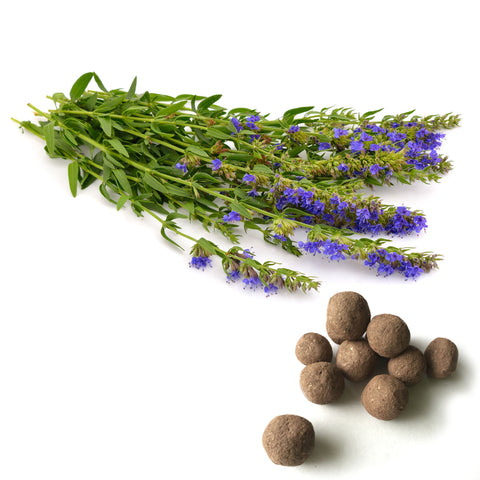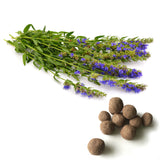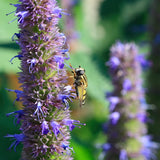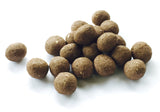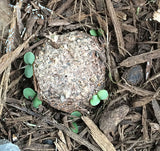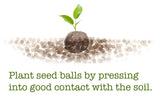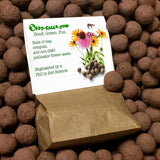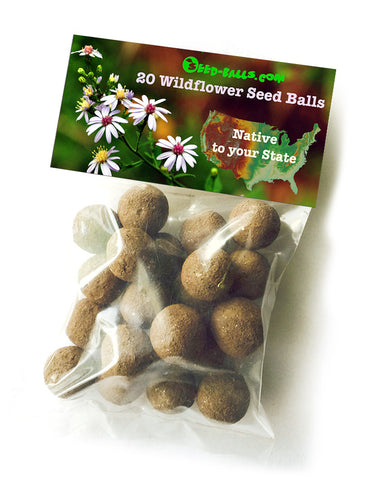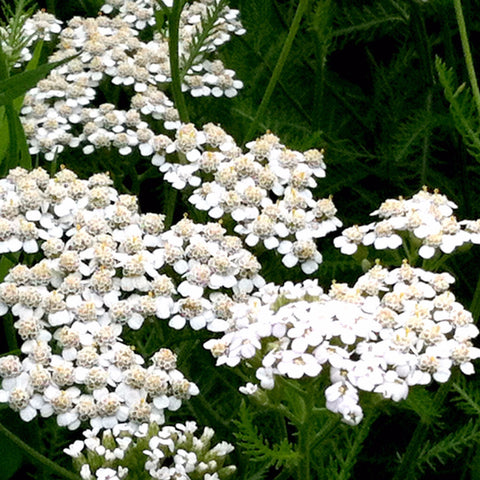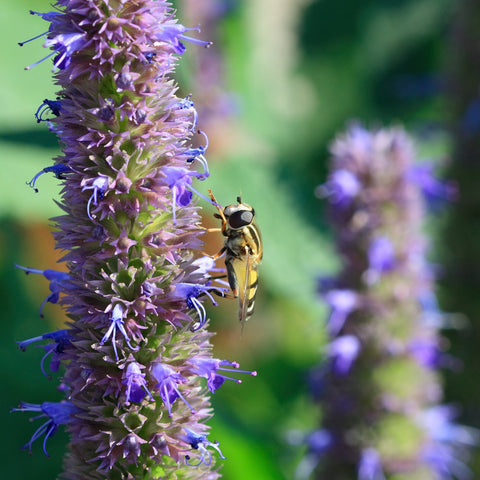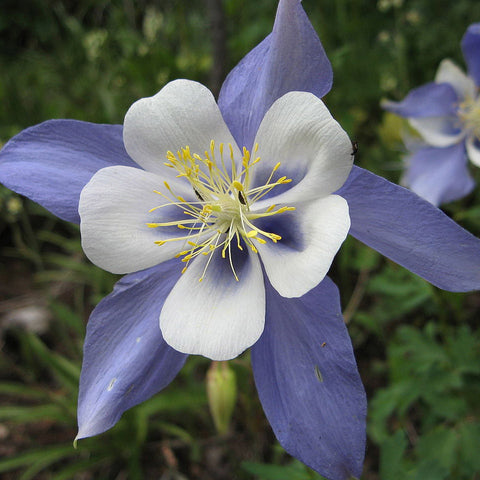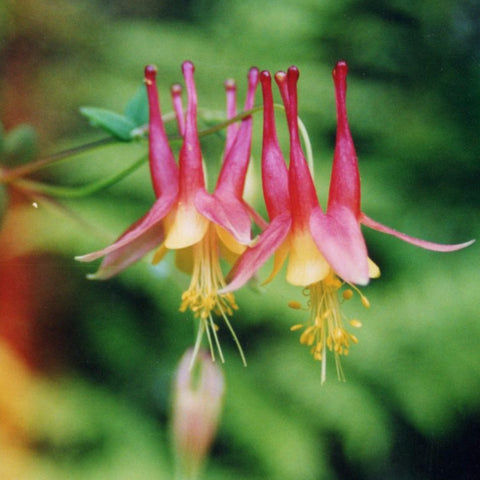Anise Hyssop Seed balls
Attract bees, butterflies, and birds to your backyard with Anise Hyssop (Agastache foeniculum). This US native wildflower produces spikes of countless lavender flowers. It grows 3 to 5 feet tall from a basal rosette of leaves. With over 90,000 flowers per spike, Anise Hyssop provides abundant food for pollinators, including honeybees, bumble bees, digger bees, leaf cutter bees, and masked bees. It is drought tolerant and deer resistant. A fragrant US native wildflower for pollinator and habitat gardens.
As a member of the mint family, Anise Hyssop is edible. Its anise-scented leaves are used in salads, jellies, and teas. Historically, Native Americans used Anise Hyssop to treat cough, fevers, wounds, and diarrhea.
Plant outdoors Fall. Seeds will germinate when conditions are optimal. In good conditions, flowers appear the first year.
DETAILED INFORMATION
• A perennial
• Native to north-central and northern North America, notably the Great Plains and other prairies
• full sun and well-draining, drought tolerant when mature
• Moderate Water Requirement
• Sow Fall, 12-24 inches apart
• Zone 3-9
Anise Hyssop is native to the following states:
Colorado, Illinois, Iowa, Minnesota, Montana, Nebraska, North Dakota, South Dakota, Wyoming.
ABOUT SEED BALLS
Seed balls (seed bombs) are 1/2-inch balls of dried soil and seeds. Essentially, they are pre-planted seeds. They are great for no-till gardening and beautifying neglected landscapes. Sow by pressing the seed ball halfway into the surrounding soil. Plant in habitats in need of biodiversity. Non-GMO. Pesticide free.
A seed ball protects seeds from erosion, foraging, and harsh conditions. This protective property often results in higher but slower germination rates. Please be patient with your seed balls. Placed in the appropriate soil and climate, they will grow.
OUR PROMISE
Grow seed balls risk free. If you are not satisfied, we will refund or replace the products that disappointed you. Why? Because we want to grow a greener, more biodiverse planet, and we want you to plant more native wildflowers and tasty vegetables. Warranty excludes custom orders and discounted overstock.
As a member of the mint family, Anise Hyssop is edible. Its anise-scented leaves are used in salads, jellies, and teas. Historically, Native Americans used Anise Hyssop to treat cough, fevers, wounds, and diarrhea.
Plant outdoors Fall. Seeds will germinate when conditions are optimal. In good conditions, flowers appear the first year.
DETAILED INFORMATION
• A perennial
• Native to north-central and northern North America, notably the Great Plains and other prairies
• full sun and well-draining, drought tolerant when mature
• Moderate Water Requirement
• Sow Fall, 12-24 inches apart
• Zone 3-9
Anise Hyssop is native to the following states:
Colorado, Illinois, Iowa, Minnesota, Montana, Nebraska, North Dakota, South Dakota, Wyoming.
ABOUT SEED BALLS
Seed balls (seed bombs) are 1/2-inch balls of dried soil and seeds. Essentially, they are pre-planted seeds. They are great for no-till gardening and beautifying neglected landscapes. Sow by pressing the seed ball halfway into the surrounding soil. Plant in habitats in need of biodiversity. Non-GMO. Pesticide free.
A seed ball protects seeds from erosion, foraging, and harsh conditions. This protective property often results in higher but slower germination rates. Please be patient with your seed balls. Placed in the appropriate soil and climate, they will grow.
OUR PROMISE
Grow seed balls risk free. If you are not satisfied, we will refund or replace the products that disappointed you. Why? Because we want to grow a greener, more biodiverse planet, and we want you to plant more native wildflowers and tasty vegetables. Warranty excludes custom orders and discounted overstock.
We Also Recommend

